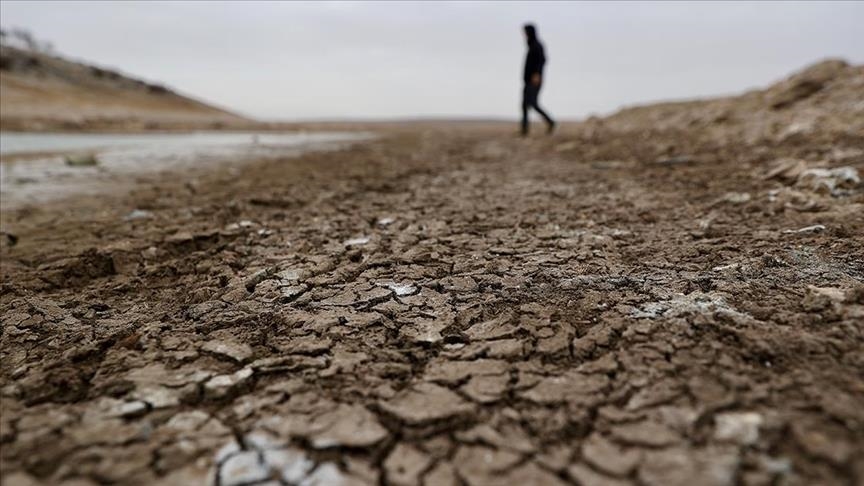'Desertification affects lives of nearly 2B people around world'
12M hectares of agricultural land degraded annually due to erosion, excessive use of chemical fertilizers, pollution

ANKARA
Desertification affects the lives of approximately 2 billion people around the world and turns people into "ecological migrants", according to the head of a nonprofit environmental group.
Speaking to Anadolu Agency on the occasion of the World Day to Combat Desertification and Drought, Deniz Atac, CEO of the Turkish Foundation for Combating Soil Erosion, for Reforestation and the Protection of Natural Habitats (TEMA), said that land degradation causes 11% reduction in food production.

.jpeg)
Observed on June 17 each year, the World Day to Combat Desertification and Drought is a UN observance day that focuses on changing public attitudes toward the leading driver of desertification and land degradation.
"Land degradation is the reduction of land productivity, biodiversity, carbon sequestration potential, and all ecosystem services of nature, including wetlands. In summary, [desertification] means impoverishment, lack of food, more drought, and thirst," she said, adding that desertification refers to land degradation in arid areas.
Highlighting that arid regions have fragile ecosystems and will suffer the most from climate change, Atac stated that droughts in these arid regions are expected to increase and intensify.
"12 million hectares (29.7 million acres) of agricultural land are degraded annually due to erosion, improper soil management, excessive use of chemical fertilizers, use of pesticides for agricultural purposes, excessive and incorrect irrigation, and pollution," she added.
"With the destruction of rainforests, tropical regions with a humid climate have begun to face the danger of desertification even in this humid climate ... Desertification affects the lives of approximately 2 billion people, reduces their well-being, [causes] food shortages, and turns people into ecological migrants," she stressed.
In response to a question as to what steps should be taken to mitigate desertification and drought, Atac said that preventing land degradation, immediately starting restoration activities, and expanding sustainable agricultural practices are the priority.
She also recalled the UN prepared the Ecosystem Restoration for People, Nature and Climate report on the occasion of this year's World Day to Combat Desertification and Drought.
The UN Convention to Combat Desertification announced that this year's theme of the day is "Restoration. Land. Recovery. We build back better with healthy land".
Importance of restoring nature
"Restoration work and preventing land and forest destruction are also important as part of combating biodiversity loss and climate change as well as reducing its effects," she noted.
Underlining that the global temperature is already more than 1°C higher than in the pre-industrial era and that glaciers on the poles continue to melting, Atac said that restoration work is deemed necessary to restore the global warming threshold that has exceeded.
"It is estimated that the restoration work to be carried out on only 15% of the degraded lands in the world will reduce the loss of species by 60%," she added.
Stating that the destruction of forests and natural vegetation increases drought, Atac said that tropical regions with a humid climate are under the risk of desertification as a typical example of this.
Touching on TEMA's ongoing efforts in the field, she noted that the foundation continues its activities in five key areas, including forestry, advocacy and environmental policies, rural development, education and organization, and volunteering.
She added that TEMA currently carries out two important projects. One of them is Hayrettin Karaca Natural Old-Growth Forests Project which was launched to determine and map old-growth forests in Turkey's Eastern Black Sea Region.
The project was named after Hayrettin Karaca, the founder of TEMA, who was also known as Grandpa Earth. He died in 2020 at the age of 97.
Another one is the Nihat Gokyigit Biodiversity Project which was launched to raise public awareness and to minimize human-induced biodiversity loss.
Founded in 1992, TEMA is the country’s leading environmental advocacy group that focuses on preserving nature by combating erosion and carrying out forestation projects.
Anadolu Agency website contains only a portion of the news stories offered to subscribers in the AA News Broadcasting System (HAS), and in summarized form. Please contact us for subscription options.





